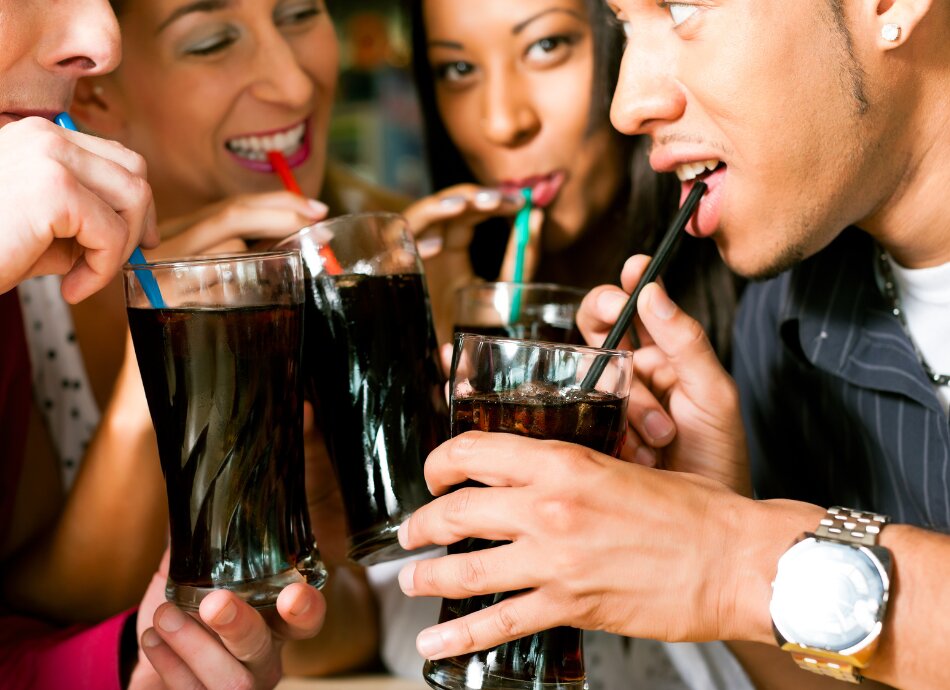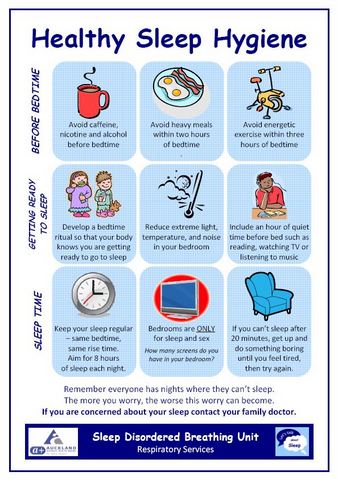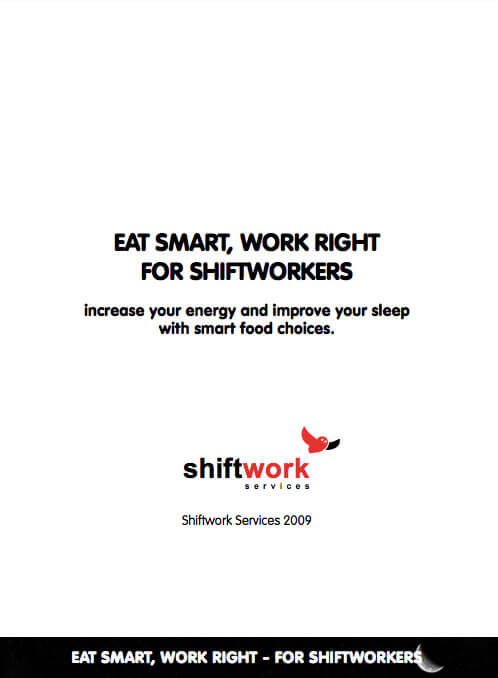Sleep – how food and drink affects it
Key points about how food and drink affects sleep
- What you eat and drink can affect how well you sleep – and how well you sleep affects what you choose to eat and drink.
- Creating a healthy eating-sleeping cycle can make a big difference to your health and wellbeing.
- Your food choices may also affect how well you sleep. Less nutritious foods, such as high sugar or low fibre carbohydrates, may reduce your sleep quality.
- There are also foods that can help you get better sleep and may break the poor-diet poor-sleep cycle.

When you are tired, you are more likely to eat more than you need to and make poor food choices, which can lead to weight gain.
Not getting enough sleep or having poor quality sleep is associated with increased snacking and irregular meals. You are also more likely to eat fewer vegetables and instead opt for high-fat, high-sugar foods. In fact, the higher the calorie the food is, the more appealing it is to a sleep-deprived brain! It’s not surprising then that there is a link between poor sleep and obesity.
Making good food choices can be a challenge for anyone with sleep problems, such as insomnia, obstructive sleep apnoea and restless legs syndrome, and also for shift workers and sleep-deprived parents. If you have one of these sleep conditions, see your healthcare provider for advice.
Regular physical activity during the day can help improve your sleep. You could also try these extra sleep tips, as well as choosing foods and drinks that help improve sleep – see more below.
While the effect of what you eat and drink on your sleep isn’t as well understood as how sleep affects your food choices, there is some evidence to support a link between the two.
Researchers have found that eating and drinking poor quality and highly processed carbohydrates (eg, noodles, sweets, energy or sugary drinks) are associated with poor sleep quality. Eating more high-quality carbohydrates (eg, whole grains), fish and colourful vegetables and following a Mediterranean-style eating plan can improve sleep quality.
Other studies have found that foods containing tryptophan (an amino acid) can help synthesise serotonin and melatonin – and may help to promote sleep.
Caffeine is a stimulant and can have a negative effect on your sleep by making it harder for you to fall asleep. This delay in getting to sleep can shorten your overall sleep time. Read more about sleep and caffeine.
Alcohol may help you relax and fall asleep in the short term but, over the night, it inhibits the sleep process and can prevent you from getting deep, restful sleep. See below for more information about how alcohol affects sleep.
How alcohol affects sleep depends on the person, the amount of alcohol, the time it is taken and how quickly it's consumed. Some people have alcohol before bedtime thinking it will make them feel sleepy, however, it can have the opposite effect.
- While alcohol may help you fall asleep, it can disrupt the sleep cycle and decrease sleep quality especially if a lot of alcohol is consumed.
- Drinking alcohol disturbs your brain rhythms and stops you getting enough of the deep sleep you need to feel rested and refreshed in the morning.
- Being tired all the time makes life more difficult and can cause stress. People who drink alcohol regularly are more at risk of developing insomnia over time.
- Every person reacts differently to alcohol. Alcohol’s impact on sleep depends on the person.
- Drinking to fall asleep can build-up your tolerance, making you consume more alcohol each night to get the sedative effects.
You can manage the negative effects of alcohol on sleep by giving your body enough time to metabolize alcohol before falling asleep. To reduce the risk of sleep disruptions, you should stop drinking alcohol at least 4 hours before bedtime. Read more about the effects of alcohol on sleep.
Based on current evidence, eating the following foods each day can improve your chances of a good night’s sleep:
- Follow a Mediterranean eating plan, which includes plenty of whole grains, vegetables, fruits, legumes, nuts, fish, olive oil and less red meat and processed foods.
- Include protein foods that contain tryptophan, eg, chicken, eggs, cheese, fish, peanuts, pumpkin and sesame seeds, milk, turkey, tofu and other soy products.
- Choose high-quality carbohydrate foods, eg, wholegrain breads and cereals, brown rice and oats.
- Eat plenty of fresh, seasonal vegetables and fruit.
Eat less of these foods and drinks to help improve the quality of your sleep:
- highly processed carbohydrates, such as refined noodles, sweets, energy or sugary drinks
- spicy foods, especially if you're prone to heartburn.
Close to bedtime
- Don't eat or drink anything with caffeine in it within 6–8 hours of your bedtime – this includes coffee, tea, energy drinks and chocolate (including hot chocolate drinks).
- Don't drink alcohol at least 4 hours before bedtime, to reduce the risk of sleep disruptions.
- Don't drink too much liquid just before bedtime (it makes you wake often to go to the loo!).
If you've made the changes above to what you do and don't eat and drink during the day, but you're still having trouble getting to sleep, try these ideas:
- High protein foods may help with sleep when eaten about 1 hour before bedtime, eg:
- fortified and/or melatonin-rich milk drinks (eg, Horlicks)
- yoghurt with oats sprinkled on top
- crackers with peanut butter or a slice of cheese or turkey
- apple with a small slice of cheese.
- Tart cherries and kiwifruit have also been found to improve sleep quality and length in some small trials.
Note: There is no evidence that probiotic supplements or chamomile tea improve sleep.
If you are a shift worker, eat your main meal before you go to work and have a light snack when you get home. Take healthy snacks to work with you and drink plenty of water but limit how much caffeine you have. Read more about shift work and sleep.
Brochures
Healthy sleep hygiene [PDF, 306 KB] Auckland DHB, NZ
(external link)Common sleep problems(external link) Health Information Translations, 2020 English(external link), Arabic(external link), Chinese (simplified)(external link), Chinese (traditional)(external link), French(external link), Hindi(external link), Japanese(external link), Korean(external link), Nepali(external link), Russian(external link), Somali(external link), Spanish(external link), Vietnamese(external link)
Eat smart, work right, for shift workers [PDF, 246 KB] Shiftwork Services, NZ, 2009
[PDF, 456 KB]Eat smart, work right, for commercial drivers [PDF, 456 KB] Shiftwork Services, NZ, 2009
Healthy foods & drinks(external link) Ministry of Health, NZ
Apps
References
- Sleep patterns, diet quality and energy balance(external link) Phys Behav. 2014;134:86–91
- The impact of sleep deprivation on food desire in the human brain(external link) Nature Communications 2013;4:2259
- Effects of diet on sleep quality(external link) Adv Nutr. 2016;7(5):938–949
- Diet promotes sleep duration and quality(external link) Nutrition Research. 2012 May;32(5):309–319
- Sleep and caffeine(external link) Sleep Education, US, 2013
- Alcohol and sleep(external link) Sleep Foundation, Australia
- What is tryptophan?(external link) Healthline, 2018
Brochures

Auckland DHB, NZ


Shiftwork Services, NZ, 2009
Credits: Healthify editorial team. Healthify is brought to you by Health Navigator Charitable Trust.
Last reviewed:
Page last updated:





